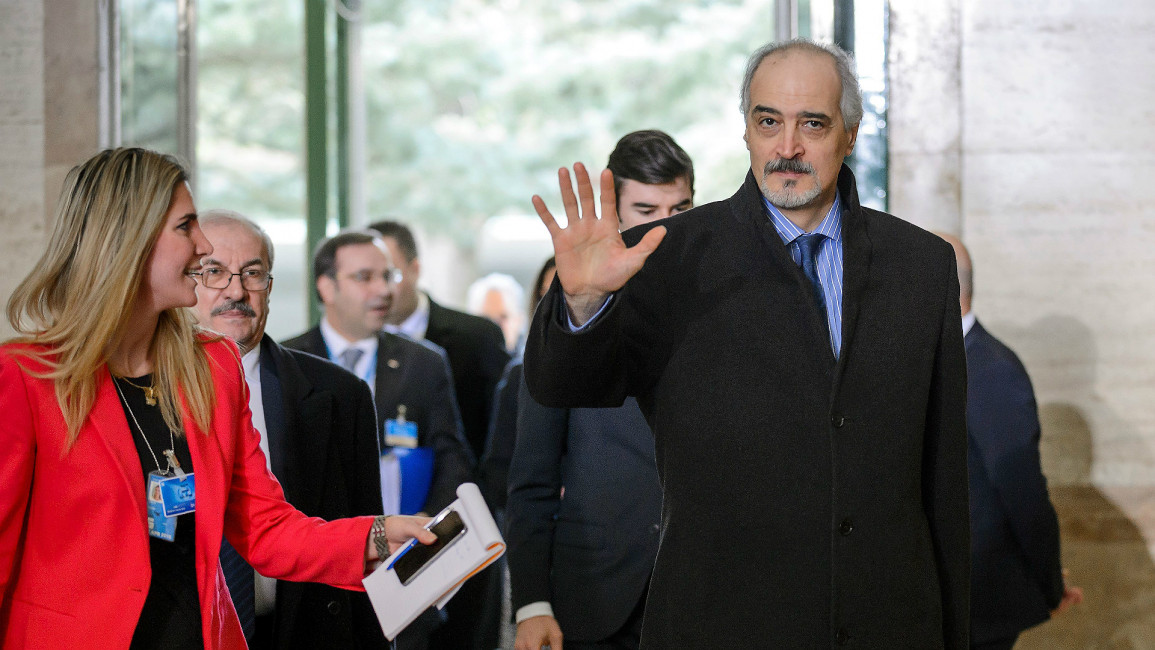Syrian Geneva peace talks in disarray
The first session of UN-brokered indirect negotiations between the Higher Negotiations Committee [HNC] and the delegation of Syrian President Bashar al-Assad began in Geneva on Monday.
Jaafari described the peace talks as still in an early stage.
"We are still in the preparatory phase for indirect talks," Bashar al-Jaafari told reporters. "We still don't know who the opposition delegation is."
But the chief negotiator of the HNC, which represents the Syrian opposition in Geneva, expressed pessimism over the negotiations.
"The situation in the ground has not changed and as long as the situation stays like that there is no optimism from our side and no good intention to reach a solution by the regime," said Mohammed Alloush.
The opposition group decided to not attend a planned afternoon meeting with the UN special envoy on Tuesday, adding further doubts about the prospects for the peace talks.
United Nations spokeswoman Khawla Mattar also confirmed that there would be "no other meetings today" in Geneva with UN special envoy Staffan de Mistura, who met with the government delegation Tuesday morning.
The UN remains positive
The HNC had previously set conditions, including an immediate halt to airstrikes and the lift of siege before the talks can go ahead.
In an apparent gesture of goodwill, Syria's government agreed on Monday to allow aid into three besieged towns - a move that was described as "designed to distract the international community's attention".
"The regime will without doubt make some small signs," HNC spokesman Munzer Makhous said.
Following his meeting with the HNC on Monday, De Mistura expressed optimism over the outcome of the talks.
The talks were expected to be "complicated and difficult" but they will "achieve something" by February 11, De Mistura said.
"When I meet the Syrian people they tell me: Don't just have a conference, have also something that we can see and touch while you are meeting in Geneva," he told reporters.
All parties must be present
Meanwhile Moscow has expressed its support to have all parties to Syria's conflict represented at negotiations in Geneva, including individuals from hard-line armed groups, Russia's Foreign Minister said on Tuesday.
The inclusion of individuals from Jaysh al-Islam and Ahrar al-Sham, whose founders are linked to al-Qaeda, is "realistic" given the situation on the ground in Syria, said Sergey Lavrov during a visit to Abu Dhabi.
Their participation at the peace talks does not mean "their recognition as legitimate partners" for peace, he added.
Russia, a key ally of Syrian leader Assad, began an air campaign in Syria four months ago, backing Syrian troops on the ground.
Over 260,000 people have died in Syria and at least 11 million have fled their homes since the Syrian civil war started almost five years ago.
An estimated four million Syrians have sought refuge in neighbouring countries alone, including Turkey, Lebanon, Jordan, Iraq and Egypt.
The crisis, described by the UN as the worst humanitarian disaster of our time, has caused untold suffering for Syrian men, women and children.



